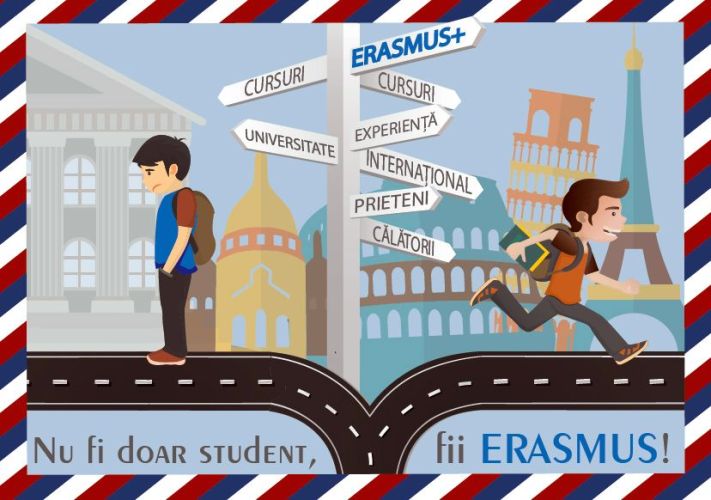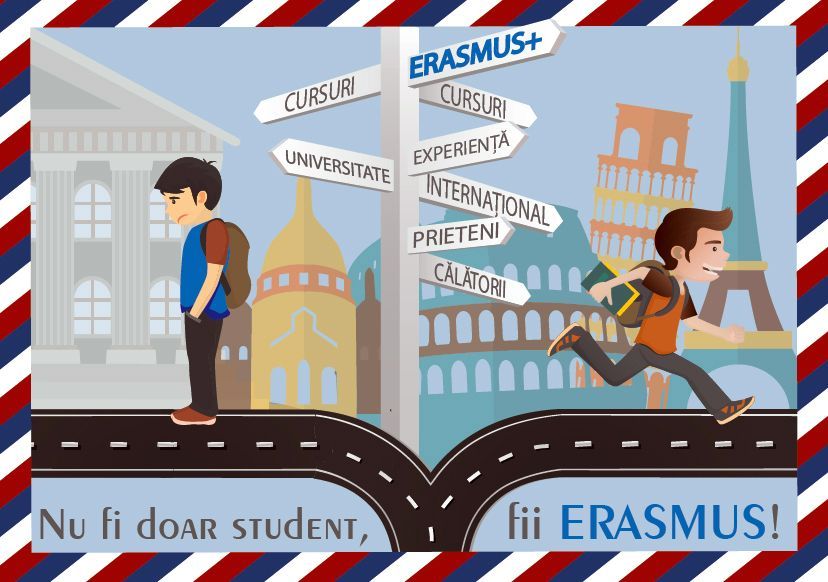The History of the Erasmus Programme
The programme got its name from Desiderius Erasmus of Rotterdam (1466-1536), a Dutch Renaissance humanist, Catholic priest, social critic, teacher, and theologian, an important name for European education. He carried on several study travels across Europe, in the great learning centers of that time – Cambridge, Leuven, Paris – putting a great emphasis onmobilities and multicultural education. Erasmus gave all his fortune to the University of Basel, becoming one of the precursors of the current Erasmus programme, reason for which the programme carries its name.
Erasmus+ is the European Union programme for education, training, youth and sport. It runs for seven years, from 2014 to 2020, with organisations invited to apply for funding each year to undertake creative and worthwhile activities.
Erasmus+ aims to modernise education, training and youth work across Europe. It is open to education, training, youth and sport organisations across all sectors of lifelong learning, including school education, further and higher education, adult education and the youth sector.
The Erasmus+ programme aims to boost skills and employability, as well as modernising Education, Training, and Youth work. The seven year programme will have a budget of €14.7 billion; a 40% increase compared to current spending levels, reflecting the EU's commitment to investing in these areas.
Erasmus+ brings together seven existing EU programmes in the fields of Education, Training, and Youth; it will for the first time provide support for Sport. As an integrated programme, Erasmus+ offers more opportunities for cooperation across the Education ,Training ,Youth and Sport sectors and is easier to access than its predecessors, with simplified funding rules.
Since the programme was launched, in 1987, more than 3 million students have benefited from an Erasmus scholarship abroad.
The Objectives of the Erasmus Programme
- Help students benefit from the experience of studying in another European country, from an educational, linguistic and cultural point of view;
- Promote cooperation between institution and enrich the educational environment of host institutions;
- Contribute to the development of a common group of qualified youth, open to international experience as future specialists;
- Facilitate the transfer of credits and recognition of the mobility periods spent abroad, with the help of the ECTS system or another compatible credit transfer system.
Erasmus Placements
This type of mobility allows students to benefit from an internship stage (placement) in an enterprise or organization from another country inside the European Community.
The host organizations for student internships can be enterprises, training centers, research centers and other organizations including higher education institutions.
If you are a student at undergraduate or master studies you can go on an internship stage with Erasmus placements. You get the perfect opportunity to get in touch with the great foreign companies in their own country or you can use the resources of other universities to write the undergraduate or master thesis.
If you are a Ph D student, through an Erasmus Placements scholarship you can go on a research stage at any of the higher education institutions inside the European Community. You can obtain an Erasmus Placements scholarship even if you have obtained an Erasmus scholarship for studies.
More information here.
Erasmus Teaching Staff Mobility
This action allows teaching staff to teach for a period ranging from 2 days – or at least 8 teaching hours, to 2 months, in a higher education institution who is a part of the Erasmus Programme.
More information here.





